
Jungmun: The Coastal Gem of Jeju City
Discover Jungmun in Jeju City: A captivating blend of pristine beaches, botanical wonders, and cultural landmarks on South Korea's enchanting Jeju Island.
Nestled along the southern coast of Jeju Island, Jungmun is a picturesque neighborhood that captivates visitors with its stunning natural beauty and rich cultural heritage. Known for its luxurious resorts, pristine beaches, and lush botanical gardens, Jungmun offers an idyllic escape for those seeking tranquility and adventure in equal measure. One of the highlights of Jungmun is the Jungmun Saekdal Beach, a crescent-shaped stretch of golden sand bordered by clear turquoise waters. Ideal for sunbathing, swimming, and water sports, this beach is a favorite among both locals and tourists. Nearby, the Jusangjeolli Cliffs present a dramatic landscape of hexagonal basalt columns formed by volcanic activity, offering breathtaking views of the ocean. For a taste of Jeju's unique flora, visitors can explore the Yeomiji Botanical Garden, one of the largest indoor gardens in Asia. This botanical paradise boasts a diverse collection of tropical and subtropical plants, as well as themed gardens that showcase the region's horticultural diversity. Another must-visit attraction is the Teddy Bear Museum, where visitors of all ages can enjoy exhibits featuring teddy bears from around the world, including life-sized bears dressed in traditional Korean attire. Cultural enthusiasts will appreciate the neighborhood's historical and artistic landmarks, such as the Jeju International Peace Center and the Cheonjeyeon Waterfalls, which are steeped in local legend. The waterfalls, also known as the 'Pond of the Emperor of Heaven,' are surrounded by lush greenery and connected by picturesque bridges, making them a perfect spot for photography and leisurely walks.
Local tips in Jungmun
- Visit Jungmun Saekdal Beach early in the morning to avoid the crowds and enjoy a peaceful start to your day.
- Bring comfortable walking shoes for exploring the lush trails and scenic spots around the Cheonjeyeon Waterfalls.
- Check the opening hours of the Teddy Bear Museum and Yeomiji Botanical Garden to plan your visit efficiently.
- Sample local Jeju delicacies at nearby restaurants, such as black pork and fresh seafood, for an authentic culinary experience.
Jungmun: The Coastal Gem of Jeju City
Nestled along the southern coast of Jeju Island, Jungmun is a picturesque neighborhood that captivates visitors with its stunning natural beauty and rich cultural heritage. Known for its luxurious resorts, pristine beaches, and lush botanical gardens, Jungmun offers an idyllic escape for those seeking tranquility and adventure in equal measure. One of the highlights of Jungmun is the Jungmun Saekdal Beach, a crescent-shaped stretch of golden sand bordered by clear turquoise waters. Ideal for sunbathing, swimming, and water sports, this beach is a favorite among both locals and tourists. Nearby, the Jusangjeolli Cliffs present a dramatic landscape of hexagonal basalt columns formed by volcanic activity, offering breathtaking views of the ocean. For a taste of Jeju's unique flora, visitors can explore the Yeomiji Botanical Garden, one of the largest indoor gardens in Asia. This botanical paradise boasts a diverse collection of tropical and subtropical plants, as well as themed gardens that showcase the region's horticultural diversity. Another must-visit attraction is the Teddy Bear Museum, where visitors of all ages can enjoy exhibits featuring teddy bears from around the world, including life-sized bears dressed in traditional Korean attire. Cultural enthusiasts will appreciate the neighborhood's historical and artistic landmarks, such as the Jeju International Peace Center and the Cheonjeyeon Waterfalls, which are steeped in local legend. The waterfalls, also known as the 'Pond of the Emperor of Heaven,' are surrounded by lush greenery and connected by picturesque bridges, making them a perfect spot for photography and leisurely walks.
Iconic landmarks you can’t miss
Yongduam Rock
Discover the stunning Yongduam Rock, a unique volcanic formation on Jeju Island, offering breathtaking coastal views and serene walking paths.
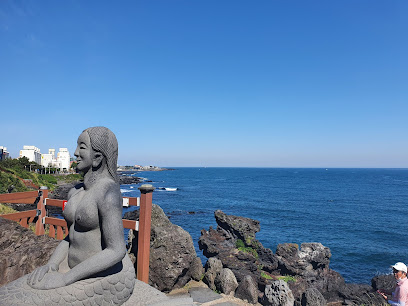
Jusangjeollidae
Explore the stunning basalt formations and breathtaking ocean views at Jusangjeollidae, a natural wonder on Jeju Island's coast.
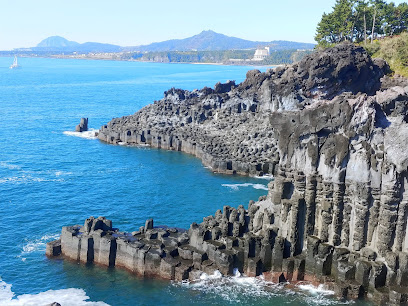
Cheonjeyeon Waterfalls
Discover the enchanting Cheonjeyeon Waterfalls in Jeju, where stunning cascades meet lush landscapes, creating an unforgettable natural experience.
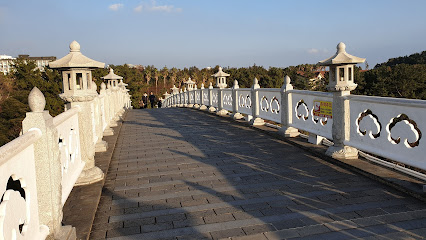
Alive Museum Jeju
Discover a world of creativity at Alive Museum Jeju, where art comes to life through interactive 3D installations and optical illusions.
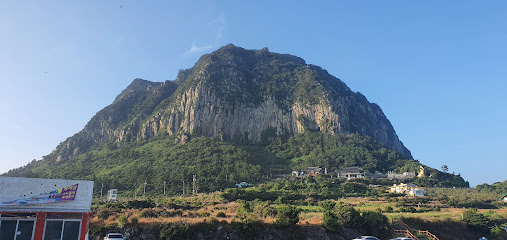
Lee Jung Seop Street
Explore the artistic and culinary gems of Lee Jung Seop Street in Seogwipo-si, a vibrant destination on Jeju Island that captivates every traveler.
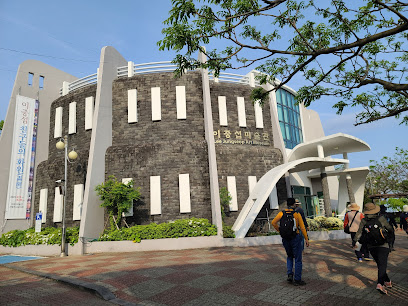
Yeomiji Botanical Garden
Discover the stunning beauty of Yeomiji Botanical Garden in Jeju-do, a lush sanctuary showcasing over 2,000 plant species amidst serene landscapes.
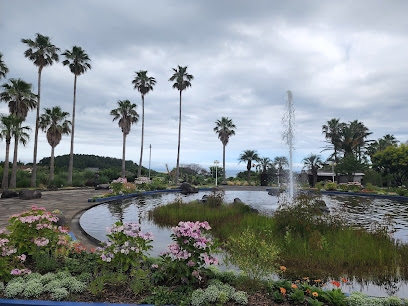
Jungmun Saekdal Beach
Explore Jungmun Saekdal Beach, a stunning coastal paradise on Jeju Island, renowned for its golden sands and crystal-clear waters.
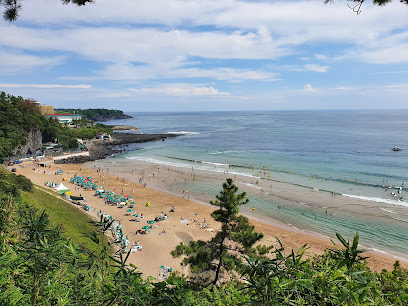
Jungmun Tourist Complex
Explore the stunning Jungmun Tourist Complex in Jeju-do, where nature, culture, and adventure seamlessly blend for an unforgettable experience.
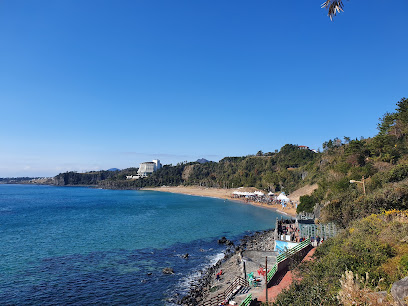
Jeju Jet
Discover Jeju Island's hidden gems and stunning coastal beauty with unforgettable boat tours at Jeju Jet. Perfect for adventure seekers and nature lovers.
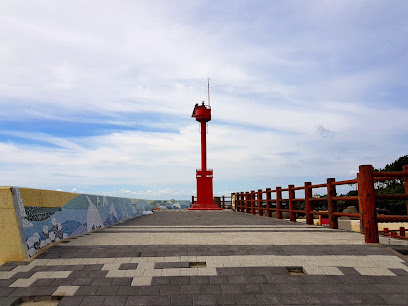
Chocolate Land
Discover a world of chocolate indulgence at Chocolate Land in Jeju, where delightful experiences and sweet treats await every visitor.
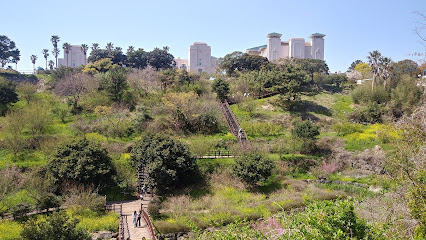
Jungmun Daepo Columnar Joints
Discover the breathtaking Jungmun Daepo Columnar Joints in Jeju, where nature's stunning volcanic formations meet the serene coastal beauty.
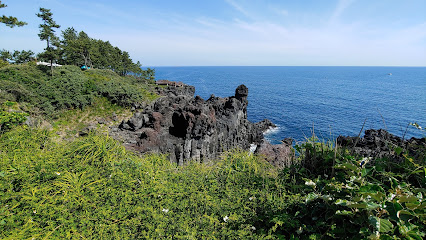
Moomin Land Jeju
Explore Moomin Land Jeju, a magical theme park where beloved characters come to life amidst the stunning landscapes of Jeju Island.
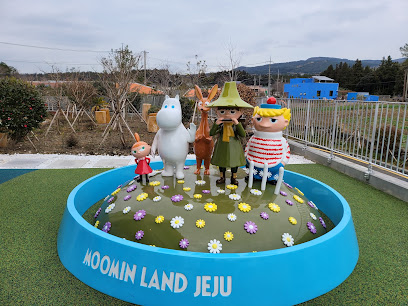
Jeju International Peace Centre
Explore the tranquil beauty and cultural significance of the Jeju International Peace Centre, a serene destination for peace enthusiasts and travelers alike.
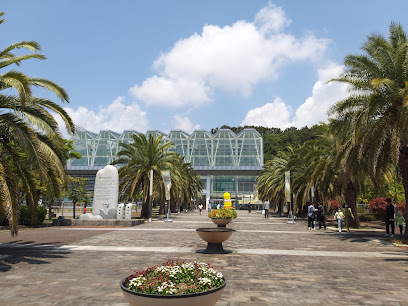
Unmissable attractions to see
Jusangjeollidae
Explore the captivating hexagonal rock formations of Jusangjeollidae on your Jeju Island adventure, where nature's artistry meets oceanic beauty.
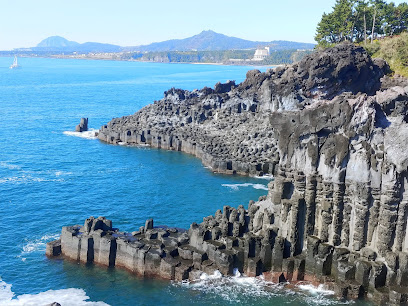
Cheonjeyeon Waterfalls
Experience the breathtaking beauty of Cheonjeyeon Waterfalls, a must-visit natural wonder on Jeju Island, featuring stunning cascades and lush surroundings.
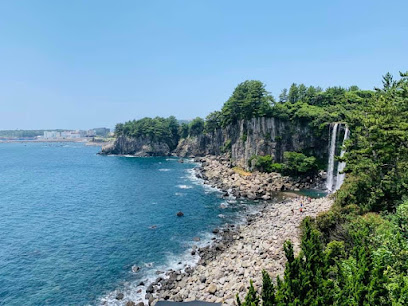
Alive Museum Jeju
Explore the enchanting world of art at Alive Museum Jeju, where creativity and imagination come to life through stunning 3D artworks.
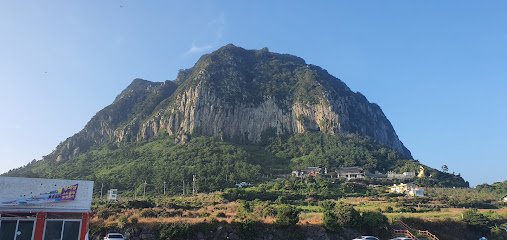
Yeomiji Botanical Garden
Explore the lush landscapes and diverse plant life at Yeomiji Botanical Garden, a serene botanical haven in Jeju-do, perfect for relaxation and discovery.
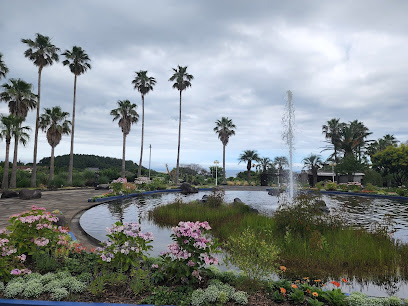
Teddy Bear Museum
Experience the charm and nostalgia of the Teddy Bear Museum in Jeju, where adorable bears and delightful exhibits await every visitor.
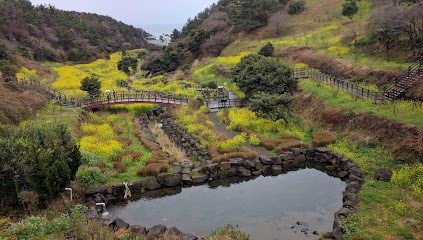
Seogwipo Natural Recreational Forest
Explore the natural beauty and tranquility of Seogwipo Natural Recreational Forest, a serene haven in Jeju-do perfect for all nature lovers.
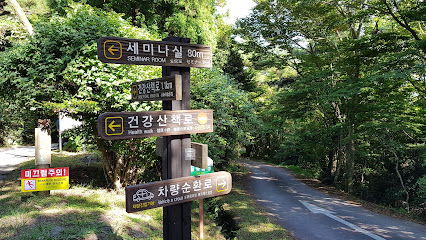
Jungmun Tourist Complex
Discover the breathtaking landscapes and vibrant attractions of Jungmun Tourist Complex, a must-visit destination on Jeju Island, South Korea.
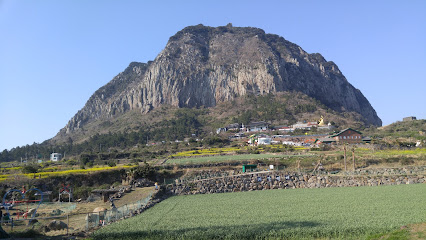
Jeju International Peace Centre
Explore the serene Jeju International Peace Centre, a tranquil oasis dedicated to global harmony and cultural understanding amidst stunning natural beauty.
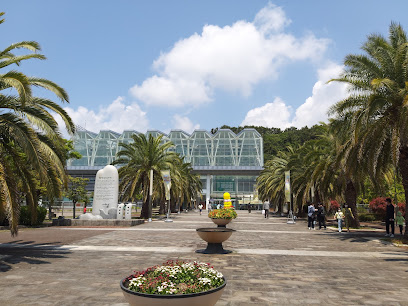
Beritnae Oreum
Explore Beritnae Oreum, a stunning volcanic cone in Jeju-do offering breathtaking views, rich biodiversity, and a tranquil escape into nature's embrace.
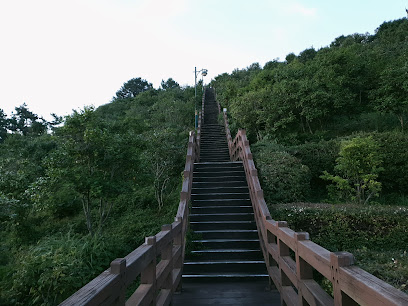
Dorippal Coast
Experience the breathtaking beauty of Dorippal Coast, a stunning coastal attraction in Jeju-do, South Korea, known for its dramatic cliffs and serene landscapes.
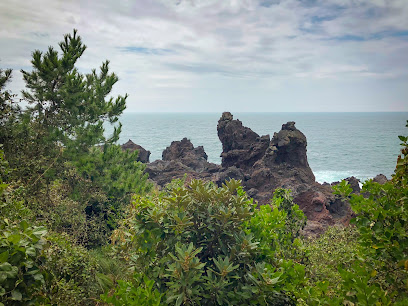
Essential places to dine
Gozip Dol Wooluck Jungmun
Experience exquisite seafood dining at Gozip Dol Wooluck Jungmun in Jeju-do, where fresh flavors meet stunning ocean views.
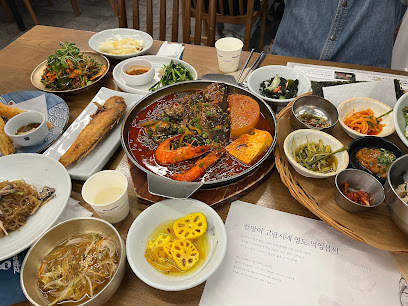
CHUNSHIM
Experience culinary excellence at Chunshim - Jeju's premier destination for fresh seafood delicacies.
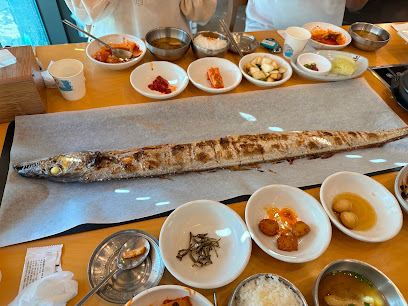
The Cliff
Indulge in exquisite dining at The Cliff – where breathtaking ocean views meet culinary artistry in Jeju-do.
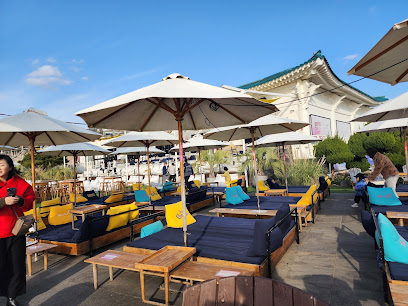
Jeju Osung Traditional Restaurant
Discover authentic Korean flavors at Jeju Osung Traditional Restaurant – where tradition meets taste amidst stunning island views.
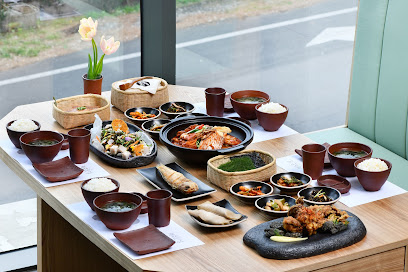
Childonga Jungmun
Experience authentic Korean BBQ at Childonga Jungmun in Seogwipo-si, where every meal is a flavorful journey into Korea's rich culinary heritage.
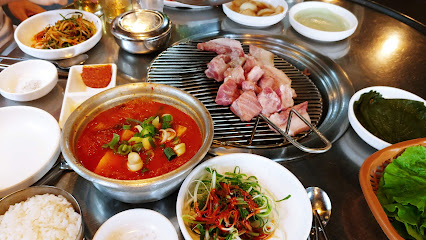
Manjok Hansanghwi
Experience authentic Korean seafood at Manjok Hansanghwi in Seogwipo-si, where freshness meets tradition amidst breathtaking island views.
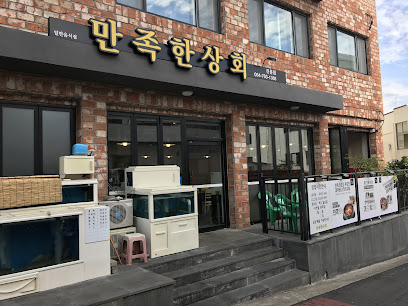
Cheondonga Jungmun
Discover authentic Korean barbecue at Cheondonga Jungmun in Seogwipo-si – a flavorful journey through Jeju's culinary landscape awaits!
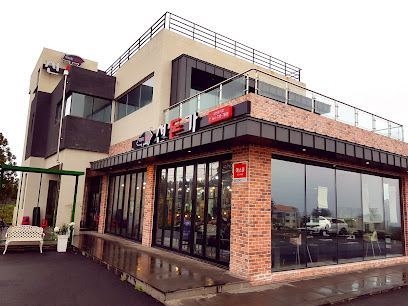
Grilled Black Pork Jip Hayeong
Savor the unique flavors of Jeju's famous black pork at Grilled Black Pork Jip Hayeong - a must-visit barbecue restaurant in Seogwipo.
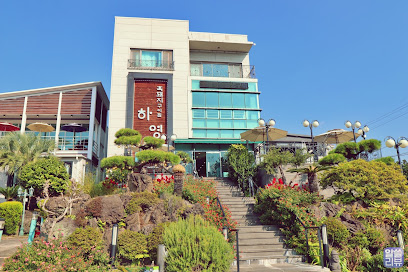
Duridoomby 두리둠비
Experience authentic Korean cuisine at Duridoomby in Seogwipo - where tradition meets flavor in every bite.
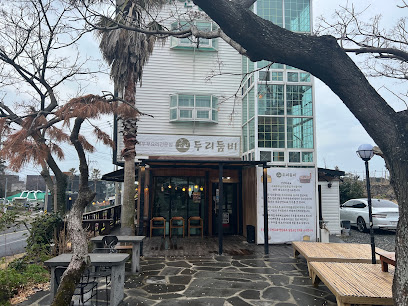
Boreumsup
Experience authentic black pork at Boreumsup in Seogwipo-si – where tradition meets flavor in every bite.
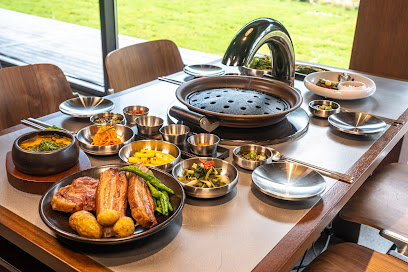
Markets, malls and hidden boutiques
Gift store Banana Jungmun
Explore the vibrant gift store Banana Jungmun in Jeju-do for unique souvenirs that capture the island's essence and charm.
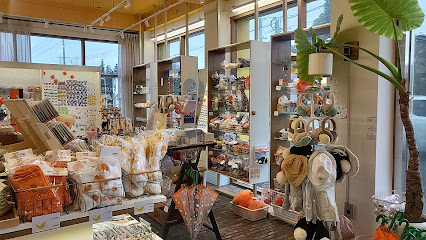
Mandal
Explore Mandal in Jeju for unique gifts and souvenirs that capture the essence of Korean culture and artistry.
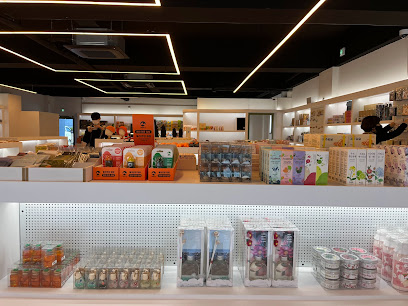
소랑아시 소품샵&선물가게
Explore the charm of Jeju Island at 소랑아시 소품샵&선물가게, your go-to destination for unique gifts and local treasures.
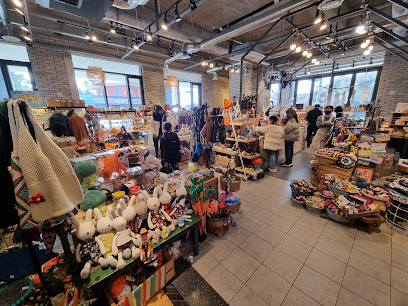
오월에제주소품샵
Explore the unique charm of Jeju Island through exquisite gifts and local crafts at 오월에제주소품샵, a must-visit destination for every traveler.
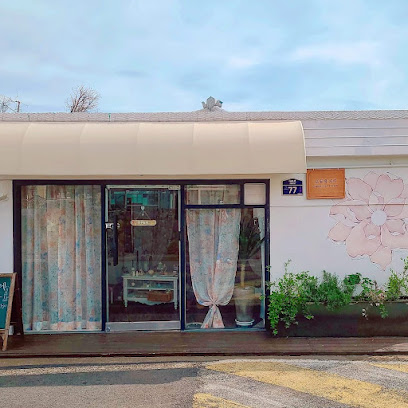
선물고팡 중문점
Explore 선물고팡 중문점 for unique gifts and souvenirs that capture the essence of Jeju-do's rich culture and natural beauty.
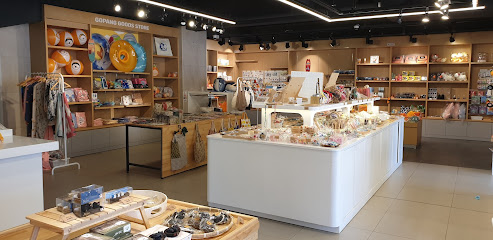
제주소나이
Discover the essence of Jeju at 제주소나이, a charming gift shop offering unique local crafts, souvenirs, and delectable treats.

Gimminseo
Discover unique local crafts and souvenirs at Gimminseo, a charming gift shop in Seogwipo-si, Jeju, perfect for memorable keepsakes.

소랑아시
Explore the charm of Jeju at 소랑아시, your destination for unique gifts, local crafts, and unforgettable souvenirs.

Souvenir Store
Discover authentic Jeju souvenirs and local crafts at the charming Souvenir Store, a must-visit for every traveler looking to take home a piece of this beautiful island.
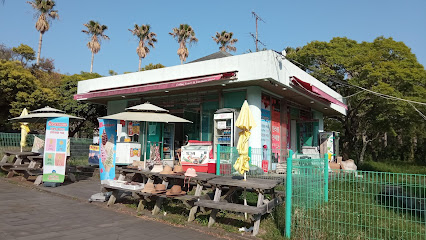
알로하제주
Explore the vibrant culture of Jeju Island at 알로하제주, your go-to gift shop for unique souvenirs and local crafts.

Essential bars & hidden hideouts
The Cliff
Experience breathtaking views and exquisite cuisine at The Cliff, Jeju's premier destination for luxury dining and relaxation.
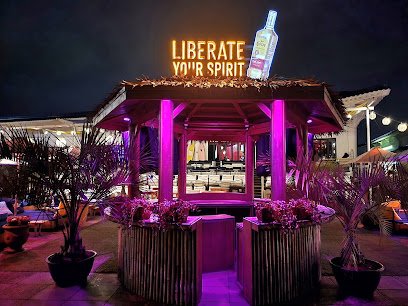
CHARLESANDBOBBY
Experience the vibrant nightlife of Seogwipo-si at CHARLESANDBOBBY, where craft beers and cocktails meet a lively atmosphere.
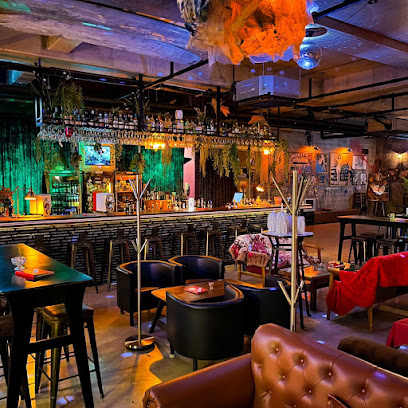
Monkey Beach
Experience the lively atmosphere and local flavors at Monkey Beach, a must-visit bar in the heart of Jeju-do's coastal beauty.
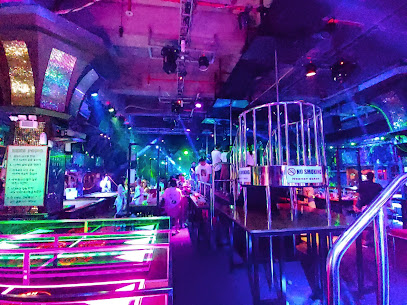
퍼블릭 PUB
Discover the vibrant nightlife of Jeju Island at 퍼블릭 PUB, where great drinks and a lively atmosphere await you.
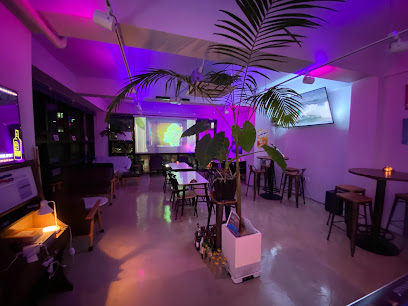
인사이드지미호 (IN SIDE JIMIHO Pub&Bar)
Discover the lively IN SIDE JIMIHO Pub&Bar in Seogwipo, where expertly crafted cocktails and a vibrant Irish pub atmosphere await.
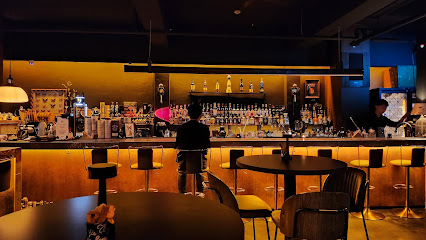
Syanti
Discover Syanti, a vibrant bar in Seogwipo, Jeju-do, where exceptional drinks and a lively atmosphere create unforgettable memories for visitors.
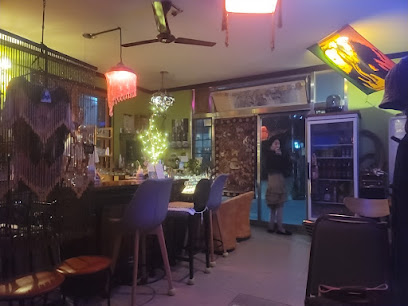
21스텝스
Experience the vibrant nightlife of Jeju at 21스텝스, where good drinks meet great company in a lively atmosphere.
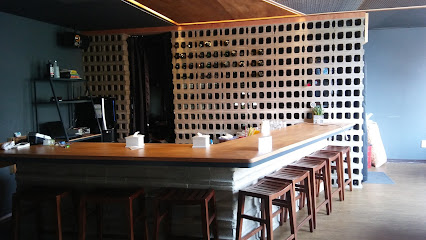
Legseuba
Discover the lively Legseuba bar in Seogwipo-si, Jeju-do, where refreshing drinks and a vibrant atmosphere await tourists seeking a memorable night out.

크레이지제이제이바
Discover the vibrant nightlife of Jeju-do at 크레이지제이제이바, where great drinks and lively atmosphere await you.

Yugmigam
Experience the vibrant nightlife of Jeju at Yugmigam, a charming bar in Jungmun-dong offering unique cocktails and a cozy atmosphere.
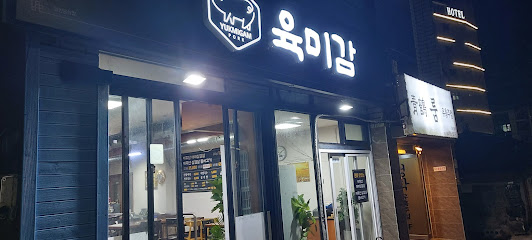
Local Phrases
-
- Hello안녕하세요
[annyeonghaseyo] - Goodbye안녕히 가세요
[annyeonghi gaseyo] - Yes네
[ne] - No아니요
[aniyo] - Please/You're welcome부탁합니다/천만에요
[butakhamnida/cheonmaneyo] - Thank you감사합니다
[gamsahamnida] - Excuse me/Sorry죄송합니다
[joesonghamnida] - How are you?어떻게 지내세요?
[eotteoke jinaeseyo?] - Fine. And you?잘 지내고요. 당신은요?
[jal jinaegoyo. dangsineunyo?] - Do you speak English?영어 할 수 있어요?
[yeongeo hal su isseoyo?] - I don't understand이해하지 못해요
[ihaehaji mothaeyo]
- Hello안녕하세요
-
- I'd like to see the menu, please메뉴를 보고 싶어요
[menyureul bogo sipeoyo] - I don't eat meat고기를 먹지 않아요
[gogireul meokji anayo] - Cheers!건배!
[geonbae!] - I would like to pay, please계산을 해 주세요
[gyesan-eul hae juseyo]
- I'd like to see the menu, please메뉴를 보고 싶어요
-
- Help!도와주세요!
[dowajuseyo!] - Go away!가세요!
[gaseyo!] - Call the Police!경찰을 불러주세요!
[gyeongchal-eul bulleojuseyo!] - Call a doctor!의사를 불러주세요!
[uisaleul bulleojuseyo!] - I'm lost길을 잃었어요
[gireul ilheosseoyo] - I'm ill아파요
[apayo]
- Help!도와주세요!
-
- I'd like to buy......을(를) 사고 싶어요
[...eul(reul) sago sipeoyo] - I'm just looking그냥 봐요
[geunyang bwayo] - How much is it?얼마에요?
[eolmaeyo?] - That's too expensive너무 비싸요
[neomu bissayo] - Can you lower the price?가격을 깎을 수 있어요?
[gageogeul kkageul su isseoyo?]
- I'd like to buy......을(를) 사고 싶어요
-
- What time is it?지금 몇 시에요?
[jigeum myeot sieyo?] - It's one o'clock한 시에요
[han sieyo] - Half past (10)열 시 반
[yeol si ban] - Morning아침
[achim] - Afternoon오후
[ohu] - Evening저녁
[jeonyeok] - Yesterday어제
[eoje] - Today오늘
[oneul] - Tomorrow내일
[naeil] - 1일
[il] - 2이
[i] - 3삼
[sam] - 4사
[sa] - 5오
[o] - 6육
[yuk] - 7칠
[chil] - 8팔
[pal] - 9구
[gu] - 10십
[ship]
- What time is it?지금 몇 시에요?
-
- Where's a/the...?...이(가) 어디에 있어요?
[...i(ga) eodie isseoyo?] - What's the address?주소가 뭐에요?
[jusoga mwoeyo?] - Can you show me (on the map)?지도로 보여 줄 수 있어요?
[jido ro boyeo jul su isseoyo?] - When's the next (bus)?다음 버스는 언제 와요?
[daeum beoseuneun eonje wayo?] - A ticket (to ....)표 하나 주세요 (....으로)
[pyo hana juseyo (....euro)]
- Where's a/the...?...이(가) 어디에 있어요?
History of Jungmun
-
Jungmun's history dates back to the early settlements of Jeju Island, which were established by the native Jeju people. These communities thrived on fishing, agriculture, and trade, taking advantage of the region's natural resources and strategic coastal location. Jungmun is particularly noted for its rich volcanic soil, ideal for cultivating local crops, which has shaped the area's agricultural practices for centuries.
-
During the Goryeo Dynasty (918-1392), Jungmun became an important site for maritime trade. The island's location facilitated cultural exchanges with neighboring countries, particularly China and Japan. This era saw the introduction of new agricultural techniques and crafts, enriching the local culture and leading to the development of unique Jeju traditions that can still be observed today.
-
The Japanese occupation of Korea (1910-1945) brought significant changes to Jungmun and the entire Jeju region. Infrastructure improvements, such as roads and railways, were established, which facilitated the movement of goods and people. However, this period also saw the exploitation of local resources and significant cultural suppression, leading to a complex legacy that the community continues to navigate.
-
The Jeju Uprising, or 4.3 Incident (1948-1949), was a significant and tragic event in Jeju's history, including Jungmun. This uprising against the government led to widespread violence and loss of life, deeply impacting the local population and shaping the region's socio-political landscape. The scars of this event are still felt today, as the community seeks reconciliation and remembrance.
-
In the late 20th century, Jungmun began to transform into a major tourist destination, spurred by the establishment of luxury resorts and attractions such as the Jungmun Saekdal Beach and the Teddy Bear Museum. This shift not only boosted the local economy but also led to a revival of interest in Jeju's unique cultural heritage, as visitors seek to experience the island's traditional practices, cuisine, and natural beauty.
Jungmun Essentials
-
Jungmun is approximately 30 kilometers from Jeju City, making it accessible via various modes of transportation. You can take a direct bus from Jeju City Bus Terminal to Jungmun, which takes about 50 minutes. Taxis are also available and can provide a more direct route. For those arriving from Jeju International Airport, the most convenient option is to take an airport limousine bus that connects directly to Jungmun.
-
Jungmun is well-connected by local buses, with routes linking major attractions such as the Jungmun Beach, Jeju Teddy Bear Museum, and the Yeomiji Botanical Garden. Taxis are readily available for quicker transport, especially for traveling to more remote areas. Renting a bicycle is a popular choice for those looking to explore the scenic coastal roads and enjoy the natural beauty of the region.
-
Jungmun is generally a safe neighbourhood for tourists. However, like any destination, it is wise to exercise caution. Petty crimes such as pickpocketing can occur in crowded areas. Avoid walking alone late at night in dimly lit areas, particularly near Jungmun Beach. Always keep your belongings secure and be mindful of your surroundings.
-
In case of an emergency, dial 112 for police assistance and 119 for fire and medical emergencies. Local hospitals and clinics are available in Jungmun for urgent medical needs. It is advisable to have travel insurance that covers medical emergencies. For minor health issues, pharmacies can be found throughout the area.
-
Fashion: Do dress comfortably for the tropical climate, but avoid swimwear outside the beach area. Religion: Do respect local customs, especially when visiting temples or shrines; dress modestly. Public Transport: Do offer your seat to elderly individuals and pregnant women. Don't eat or drink on buses. Greetings: Do greet locals with a polite bow or nod; a handshake is also acceptable. Eating & Drinking: Do try local specialties such as fresh seafood and traditional Jeju dishes. Don't waste food, as it is considered disrespectful.
-
To experience Jungmun like a local, visit the small markets early in the morning for fresh produce and local snacks. Engage with the friendly vendors, who are often eager to share local tips and stories. Take part in traditional tea ceremonies to understand the cultural significance of tea in Korean society. Don't miss the opportunity to watch the sunset at Jungmun Beach, a favorite spot among locals.
Nearby Cities to Jungmun
-
Things To Do in Mokpo
-
Things To Do in Suncheon
-
Things To Do in Gwangju
-
Things To Do in Jeonju
-
Things To Do in Busan
-
Things To Do in Daegu
-
Things To Do in Daejeon
-
Things To Do in Ulsan
-
Things To Do in Fukuoka
-
Things To Do in Gyeongju
-
Things To Do in Pohang
-
Things To Do in Andong
-
Things To Do in Suwon
-
Things To Do in Incheon
-
Things To Do in Seoul









